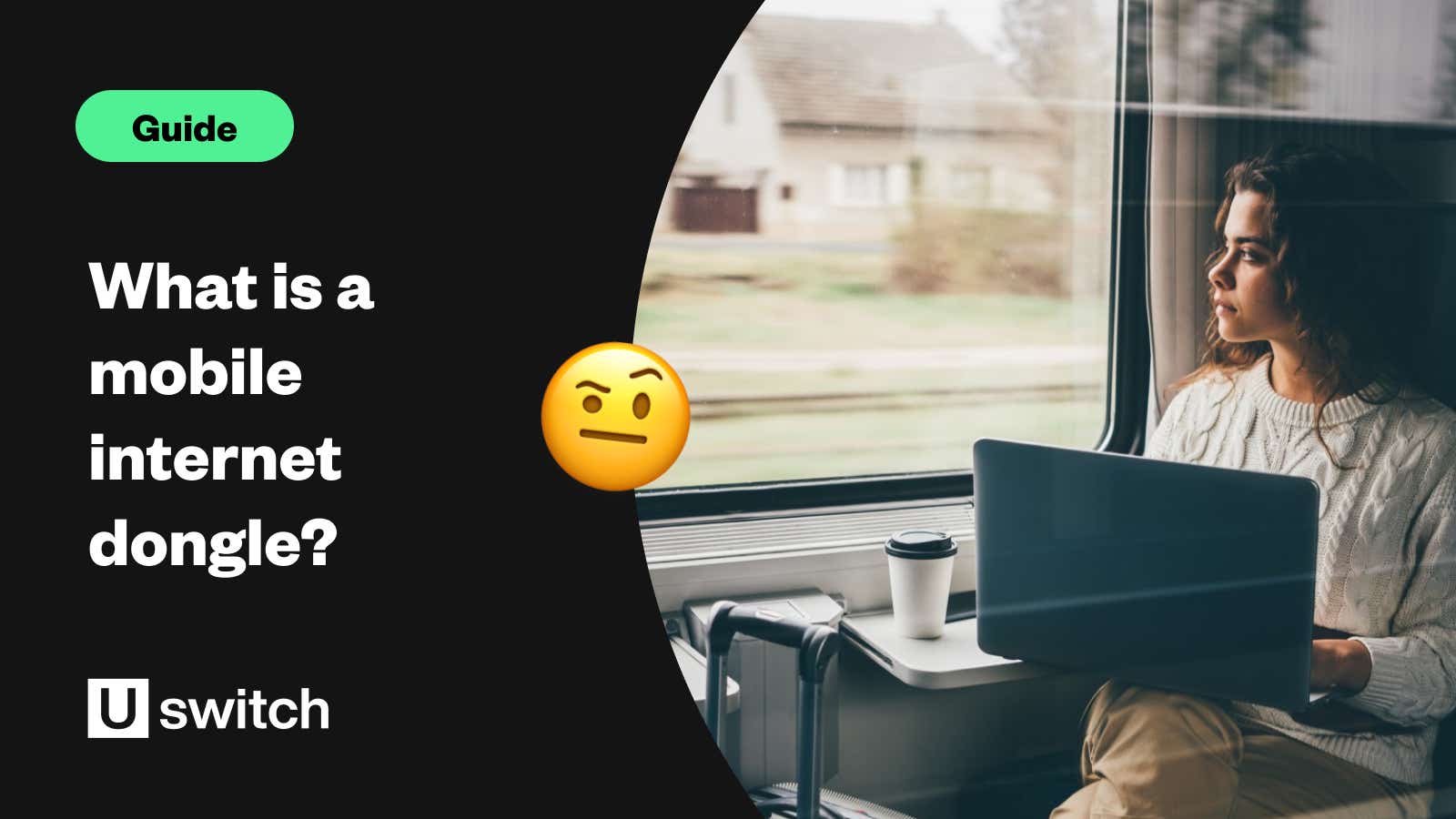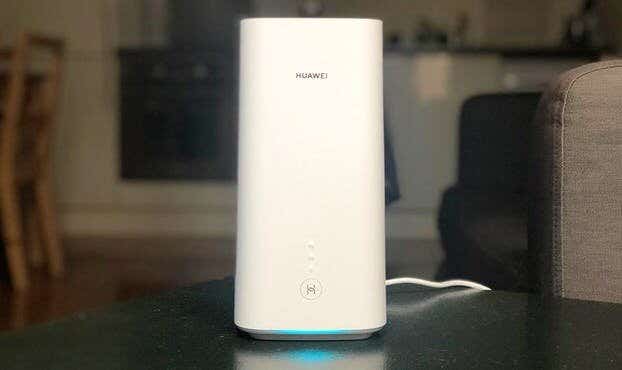Mobile broadband dongles allow you to get online quickly, giving you internet access wherever you are. They're also becoming a viable option for home broadband, getting you online fast and without the need for an engineer to visit your home.
Mobile broadband dongles are incredibly simple to set up and will keep you connected wherever there is a 4G or 5G mobile connection (depending on the dongle you choose).
What is a dongle?

A dongle is a small USB 'internet stick' that allows you to access online services on a compatible device without needing to connect to Wi-Fi.
It is also known as a Wi-Fi dongle, USB modem, internet stick, USB network adapter or USB mobile broadband stick. Dongles are a fairly popular addition for laptops because they can stay connected on the go.
What is USB internet?
USB internet is another term used for accessing internet services via an internet dongle since most dongles are connected to your laptop via a USB connection.
How does an internet dongle work?
A Wi-Fi dongle is, in effect, a small internet-connected device you can plug into your computer or laptop. It connects to the internet in the same way your smartphone does, via 4G and 5G networks.
This means you'll need to pay for internet access, and you'll only be able to use it with one device at a time. You'll also need to make sure it will connect properly to your device - some dongles need a USB port, but some can connect wirelessly, usually via Bluetooth. So make sure the device you want to use is compatible with it.
Do I need a Wi-Fi dongle for my laptop?
A mobile internet dongle is no substitute for a fixed broadband line in your home because it usually just works for one device at a time. But its versatility can make it incredibly useful for certain people.
Why you should get a mobile internet dongle:
If you travel a lot and need to be able to access the internet on your laptop without having to rely on free Wi-Fi from Starbucks or airport lounges
Similarly, if you like to work in public spaces but don't want to rely on poor, unrestricted Wi-Fi, you could save yourself time and effort with a mobile internet dongle
If your home broadband just isn't fast enough, or there are too many people using it at once, a mobile internet stick is a great backup option if you need to get online on your device quickly
Pros and cons of mobile broadband dongles
Here are the benefits and downsides to using a mobile internet dongle for getting online at home, and when you're out and about.
Pros
The introduction of 5G mobile broadband means a dongle is now a serious alternative to fixed-line home broadband. This will depend on the coverage of 5G in your area, which is constantly growing but only really available in urban areas right now.
Mobile broadband is quick and easy to set up and doesn't require an engineering appointment
Dongles are supplied for free when you take out a contract
USB dongles give you greater flexibility, allowing you to access the internet when away from home or the office
Developments in mobile broadband technology have seen mobile dongles become smaller, sleeker and faster in recent years
Mobile broadband dongles run on the battery of your computer or laptop, meaning you don’t need an additional charger for them
Cons
4G dongles are still the most common types of mobile broadband sticks, but it has comparatively slower average speeds than many fibre broadband packages. This would make it difficult to do high-data activities like large file downloads or 4K streaming, especially while someone else is using the internet too.
Coverage is dependent on the mobile phone reception in your area, so the mobile 'not'-spots that have you cursing your network provider might also affect your mobile broadband connection
Unlike home broadband connections, mobile broadband usually has monthly data limits
Overseas charges have come down, but it's still not cheap to use a dongle abroad
Which providers offer mobile broadband dongles?
Broadband dongles use the same 3G, 4G and 5G technology as a mobile phone, so nearly all mobile providers offer mobile broadband. The market is simply too competitive not to.
Vodafone offers a range of mobile broadband dongles with speeds ranging from 7.2Mbps to 21Mbps and generous download allowances, depending upon the plan.
Three's 4G dongle provides speeds of up to 42Mbps.
EE, the UK's 4G specialists, offers speeds of up to 60Mbps.
Sign up for our latest broadband offers and expert advice
Get more expert insights, browse our latest exclusive offers and find money-saving deals from Uswitch.
What is MiFi?
Like a mobile internet dongle, a MiFi unit connects you to the internet over 3G, 4G or 5G networks.
But unlike dongles — which only offer a connection for just one PC or laptop — a MiFi acts as a router by sending out a wireless mobile broadband signal that can be shared between multiple internet-connected devices at the same time.
Just consider that if you choose a limited deal and want to share your monthly allowance between multiple devices such as consoles, smartphones, tablets and laptops, you're likely to get through your download limit a lot quicker.
For more information on MiFi, visit our more detailed guide.
Our best mobile broadband deals
Check out our range of 4G and 5G mobile broadband deals.



